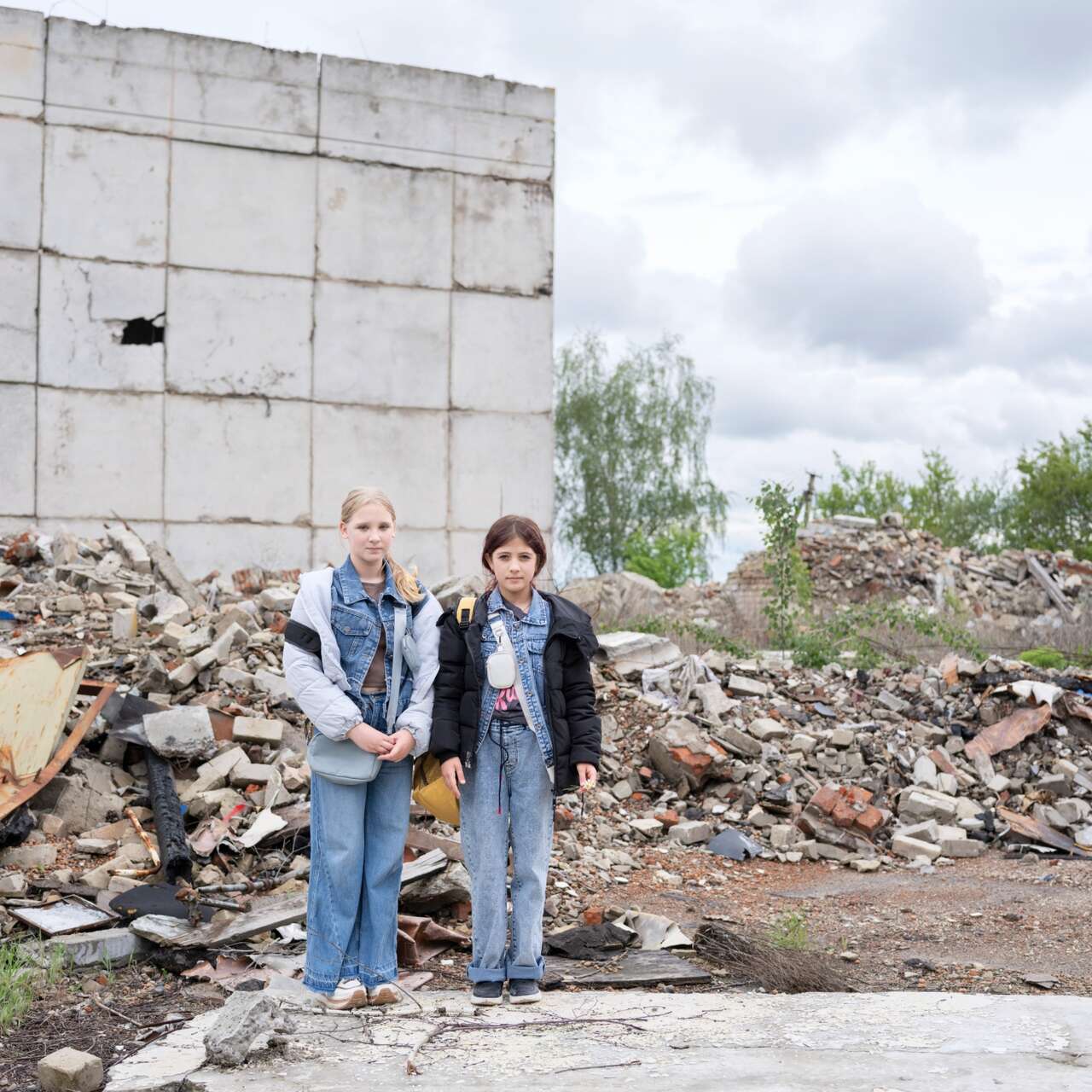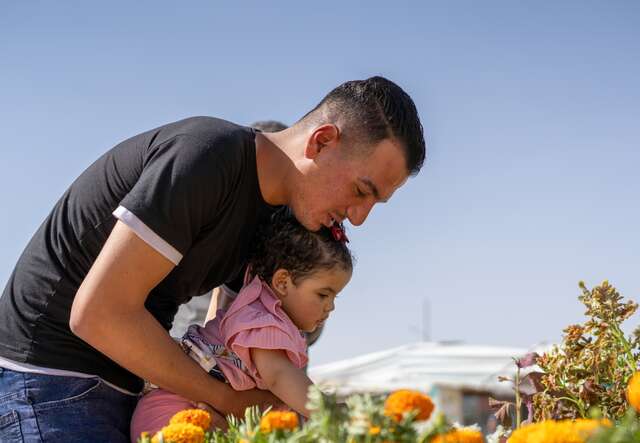
Tens of thousands of families in the U.S. were already stuck in a years-long backlog to bring relatives and community members, who belong to persecuted religious minorities, to safety.
Now, persecuted religious minorities from Iran, Ukraine, and other former Soviet Union countries are unable to reach safety in the U.S. due to the suspension of the refugee resettlement program.
The Trump administration should fully restore resettlement and ensure that the families of persecuted religious minorities are also swiftly reunited.
Persecuted religious minorities are refugees
Religious minorities in former Soviet Union countries (e.g., Evangelical Christians, Jews, and Ukrainian Catholics) and in Iran (e.g., Baháʼís, Christians, and Jews) have long faced systemic discrimination and restrictions on religious freedom. Under U.S. law and the international refugee definition, individuals fleeing religious persecution qualify for protection.
What is the Lautenberg Program and how does it provide safety for religious minorities?
In 1990, Congress adopted a provision, often referred to as the “Lautenberg Program,” to provide a pathway to safety for members of historically persecuted religious groups from Russia, Ukraine and other countries in the former Soviet Union. This program allows them to reunite with their close family members who live in the U.S and provides them with refuge from ongoing threats.
In 2004, the Lautenberg pathway was expanded to allow religious minorities from Iran, including Jews, Christians, Baha’is, Sabaean-Mandaeans and Zoroastrians, to reunify with their family in the U.S.
With government restrictions on religion around the world at record highs, this program became a crucial pathway to protection for persecuted religious minorities.
How are religious minority refugees vetted?
Refugees, including people admitted through the Lautenberg program, are vetted more intensively than any other group seeking to enter the U.S. Applicants to the Lautenberg program must provide convincing evidence that they are a member of one of the persecuted religious minority groups eligible for the program and establish their ties to a family member or other sponsor in the U.S.
Intense security screenings are led by U.S. government authorities, including the FBI, the Department of Homeland Security, the Department of Defense, and multiple other security agencies. The process typically takes months. Applicants undergo biographic and biometric checks, medical screenings, forensic document testing, and in-person interviews.
Why is there a backlog of Lautenberg cases?
The backlog of cases has been growing since 2016 due to changes in the U.S. security screening process, the COVID-19 pandemic, and a multi-year suspension of the program. The Trump administration’s 2017 travel ban also resulted in a drastic decline in resettlement of religious minorities.
In 2023, after a six-year pause, the Lautenberg program restarted, but its small quota left most applicants in limbo.The Biden administration’s fiscal year 2025 goal to process 1,250 Lautenberg cases from Iran, for instance, made important but still limited progress in addressing the backlog.

The Trump administration halts reunification under the Lautenberg program
The Trump administration’s 2025 suspension of the refugee admissions program and new travel ban have again halted Lautenberg reunifications for religious minorities. The administration doubled down in early 2026, closing a vital Resettlement Support Center in Austria that long served as the lifeline for people facing religious persecution in Iran.
Yet, at the same time, Vice President Vance noted in remarks to the International Religious Freedom Summit in February 2025 that “both at home and abroad, [the U.S. has] much more to do to more fully secure religious liberty for all people of faith.”
After years of waiting, thousands of families are left in limbo
Some IRC clients have been waiting for more than eight years to sponsor family members through the Lautenberg program. Among them is Rostam, who is Zoroastrian and applied to sponsor and resettle his parents and siblings from Iran in 2017.
After years of delays, Rostam’s family was finally contacted, interviewed in December 2024 and began preparing for departure while they waited for approval. Unfortunately, in the midst of their family reunification case processing, a shockwave hit: the Trump administration decided to suspend resettlement, including the Lautenberg program.
Now Rostam and his family face another indefinite limbo, but they’re not alone. Recent estimates suggest that 13,000 individuals from Iran (including at least 9,000 ethnic Armenian and Assyrian Christians, 700 Jews, as well as many Baha’i, Sabean-Mandaean, and Zoroastrian applicants) and 17,000 Ukrainians are still waiting to reunite through the program.
What is the IRC doing to help?
The IRC submits Lautenberg applications and resettles families once their cases have been approved. Since 2018, our Los Angeles office has helped people apply for reunification with more than 4,800 religious minority family members still living in Iran and former Soviet Union countries. Our offices in Seattle and Sacramento have also received significant numbers of applications to sponsor religious minorities through the program.
The IRC is committed to helping community members prepare requests to sponsor relatives in Iran, Ukraine, and other eligible countries when applications for the Lautenberg program reopen.
The IRC’s support for vulnerable communities extends far beyond the Lautenberg program. With over 90 years of experience, we assist people affected by crises in more than 40 countries to survive, recover, and rebuild their lives. We also help refugees and displaced individuals resettle and integrate into new communities across the U.S. and Europe.
How can I help persecuted religious minorities?
Take Action: Write to the White House today to ask the Trump administration to fully restore the U.S. Refugee Resettlement Program and rescind the travel ban so that all vulnerable refugees can reach safety in the U.S.
Take Action: Contact your members of Congress to share your support for the Lautenberg Program and ask that they continue to re-authorize it. The Lautenberg program is not permanent and it must be reauthorized each year by Congress.
Support the IRC: Your donation helps the IRC deliver essential services to refugees in the U.S. and in crisis-affected regions worldwide.




